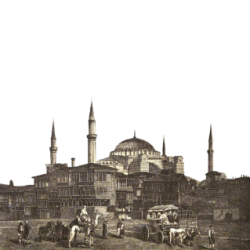Fourth, support cross-border humanitarian assistance. The Sudan government will not allow food and aid to get to the people who have been displaced from their homes. In my estimation, famine conditions will hit southern Kordofan in about six weeks. Currently there is no sufficient food getting to the people that need it. If the Bashir regime actually allowed food aid to enter the state from Khartoum, then the government would use the food as a weapon of war as they did during the last war. During the last war, the Sudan government controlled relief aid that entered southern Kordofan and established "Peace Camps." The Peace Camps were where most of the atrocities and war crimes took place. If food aid came from the north, then the aid would be controlled by the very government that is attacking the people the aid is supposed to help.
Many are concerned for your safety in light of the publicity of your visit to the United States. Why did you choose to come back for this short visit to the United States? Isn't this publicity going to make it hard for you when you return to Sudan?
It was a very hard decision for me to come back to the United States for these past three weeks, in large part because my wife was not able to get her visa and travel to the U.S. with me. I also realized that if I came back and publicly spoke out against what is happening in Sudan, the Sudanese government would target me.
What finally clinched my decision to do this U.S. trip was an interview I saw of a man who had walked 7 days with more than 150 people from their burned-out homes to the refugee camp in South Sudan. I heard the distress in his voice and his great concern for the children around him as he described what the Sudanese Army did to his village. He explained how the army had burned their houses, abducted people from the village. Everyone ran to the bush and now they have no home, no clothes, no food, nothing. I really wept as I heard this man's cry for help, because I knew that hardly anyone knows about this war and fewer are helping these people. I was angered that the Sudanese government was literally getting away with murder.
So after long prayer and discussions with my wife, we decided that I needed to come to the U.S. to raise awareness and try to push some action.
Yes, it will be extremely dangerous for me to go back to Sudan. I know that I am a target. I know that the government of Sudan is angry. I know that President Omar Bashir is angry. But no one has entered his house and abducted his wife or kids. No one has ever burned his house down with all of his possessions, leaving him to wander in the wilderness with no clothes or food. No Mig fighter jet or Antonov bomber has ever dropped bombs near him and his family.
And he is angry? Who is he to be angry? He does all of these things to the poor of his own country. He's supposed to be their leader and a servant of the people, finding any way to assist these people that live in houses constructed of grass and mud. Yet everyday he conducts these atrocities against the people of southern Kordofan, Blue Nile and Darfur.
Americans will be tempted to see this as a war on Christians by Muslims. What are the relations between Christians and Muslims in the Nuba Mountain region? Is this a religious war?
The people of Nuba are very unique in that they respect everyone's freedom of religion. Nuba is about 70 percent Muslim and 30 percent Christian but their faiths do not divide them politically. Even though someone in Nuba may be Muslim and not agree with Christianity, they still respect the Christians. And the Christians, while they don't agree with many Islamic doctrines, respect the freedom for a person to decide for himself or herself.
The SPLM-N Nuba force that is battling the Sudan Armed forces is made up of many Muslims and Christians that are fighting for their freedom—the freedom to be Christian or Muslim, the freedom to be Nuba or Arab or Fung or Fur and not to be forced into a religion or into a culture that is not their own. They are fighting to be represented in their government. They are fighting for a government that is accountable to its people no matter their race, religion, ethnicity or political affiliation. And finally they're fighting for their survival.
Having said that, I think the National Congress Party that is currently controlling the country and the Government's Armed forces do try to use religion to persuade people to fight for them against the Nuba people—but when they do that, they are not telling the truth. Muslims and Christians both are suffering at the hands of this aggression, and the real reasons for the aggression are political and economic. I also believe that the government uses race, ethnicity, tribalism or political affiliation in addition to religion to try and divide the population, and to justify pushing different populations to places where the government wants them to go.




